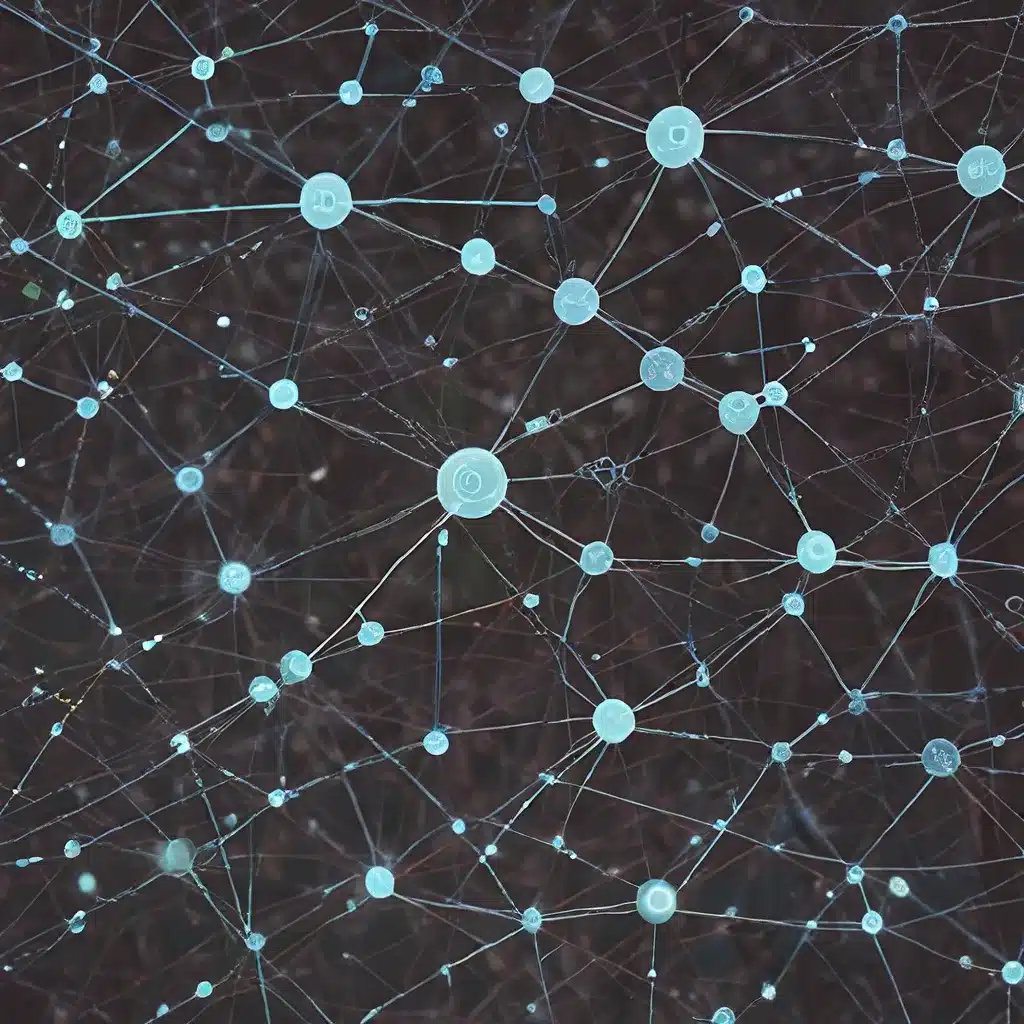
As the world of technology continues to evolve, the integration of sensor networks and the Internet of Things (IoT) has become increasingly prevalent in the realm of healthcare. One area where these advancements have made a significant impact is in the field of precision medicine. This innovative approach to healthcare focuses on tailoring treatments and interventions to the unique characteristics of each individual patient, rather than relying on a one-size-fits-all approach.
The Rise of Sensor Networks in Precision Medicine
Sensor networks play a crucial role in enabling the data-driven personalization that is the foundation of precision medicine. These interconnected systems of sensors, communication devices, and data processing platforms allow for the continuous monitoring of a patient’s physiological parameters, environmental conditions, and lifestyle factors. By collecting and analyzing this vast amount of real-time data, healthcare providers can gain a deeper understanding of an individual’s unique health profile, leading to more accurate diagnoses, targeted treatments, and proactive interventions.
One of the primary advantages of sensor networks in precision medicine is their ability to capture a comprehensive snapshot of an individual’s health status. These networks can be integrated into wearable devices, implanted sensors, or distributed throughout a patient’s living environment, enabling the continuous monitoring of vital signs, physical activity, sleep patterns, and even dietary habits. This wealth of data can provide valuable insights into an individual’s overall well-being, allowing healthcare providers to identify early warning signs of potential health issues and tailor interventions accordingly.
IoT Applications in Precision Medicine
The integration of IoT technology further enhances the capabilities of sensor networks in precision medicine. By connecting these sensor-enabled devices to the internet, healthcare providers can access and analyze the data remotely, enabling real-time monitoring and decision-making. This connectivity also allows for seamless data sharing and collaboration among healthcare professionals, enabling a more holistic and coordinated approach to patient care.
One notable example of IoT applications in precision medicine is the use of smart inhalers for the management of chronic respiratory conditions, such as asthma or chronic obstructive pulmonary disease (COPD). These devices are equipped with sensors that track medication usage, inhalation patterns, and environmental factors, providing healthcare providers with a comprehensive understanding of a patient’s disease management. This data can then be used to adjust treatment plans, improve medication adherence, and even predict and prevent future exacerbations.
Similarly, smart contact lenses equipped with sensors are being developed to continuously monitor glucose levels in patients with diabetes. By providing real-time data on blood sugar fluctuations, these devices can help patients and their healthcare teams optimize insulin dosages and dietary adjustments, ultimately leading to better disease management and improved quality of life.
Addressing Sensor Network Challenges
While the benefits of sensor networks in precision medicine are evident, there are also a number of challenges that must be addressed to ensure their widespread adoption and effective implementation.
Security and Privacy Concerns: One of the primary concerns with the use of sensor networks and IoT devices in healthcare is the potential for data breaches and unauthorized access to sensitive patient information. Robust data security protocols and encryption methods are essential to protect patient privacy and maintain the integrity of the collected data.
Energy Management and Efficiency: Sensor networks often rely on battery-powered devices, which can pose challenges in terms of energy consumption and battery life. Advancements in energy-efficient sensor design and power management strategies are crucial to ensure the continuous and reliable operation of these systems.
Interoperability and Data Integration: Seamless integration of data from diverse sensor networks and IoT devices is essential for comprehensive patient monitoring and data-driven decision-making. Standardized data formats and communication protocols are necessary to facilitate the exchange of information across different healthcare systems and platforms.
The Future of Sensor Networks in Precision Medicine
As the field of precision medicine continues to evolve, the role of sensor networks and IoT technologies will become increasingly vital. Researchers and healthcare professionals are actively exploring innovative ways to leverage these advancements to improve patient outcomes, enhance disease management, and drive personalized healthcare.
One promising area of research is the development of wearable sensor networks that can continuously monitor a wide range of physiological parameters, such as heart rate, oxygen levels, and brain activity. These advanced sensor systems can provide healthcare providers with a detailed understanding of an individual’s health status, enabling early detection of potential issues and the implementation of proactive interventions.
Furthermore, the integration of artificial intelligence (AI) and machine learning algorithms with sensor network data can lead to the development of highly personalized treatment plans. By leveraging the power of predictive analytics, healthcare professionals can identify patterns and correlations within an individual’s health data, allowing for more accurate diagnoses, targeted therapies, and personalized disease management strategies.
Another exciting area of exploration is the use of implantable sensor networks that can provide real-time monitoring of internal physiological processes. These advanced sensor systems can be strategically placed within the human body, enabling the continuous assessment of parameters such as organ function, medication levels, and disease progression. This level of detailed, in-vivo data can revolutionize the way healthcare providers approach patient care, leading to more personalized and effective interventions.
As the integration of sensor networks and IoT technologies continues to advance, the potential for transformative changes in precision medicine is immense. By empowering healthcare providers with data-driven insights and enabling the personalization of treatments, these technologies have the power to improve patient outcomes, reduce healthcare costs, and ultimately, enhance the overall quality of life for individuals seeking personalized healthcare solutions.
The future of precision medicine is inextricably linked to the advancements in sensor network and IoT technologies. As these innovative solutions continue to evolve and become more widely adopted, the promise of truly personalized healthcare will be realized, revolutionizing the way we approach the prevention, diagnosis, and treatment of various health conditions.